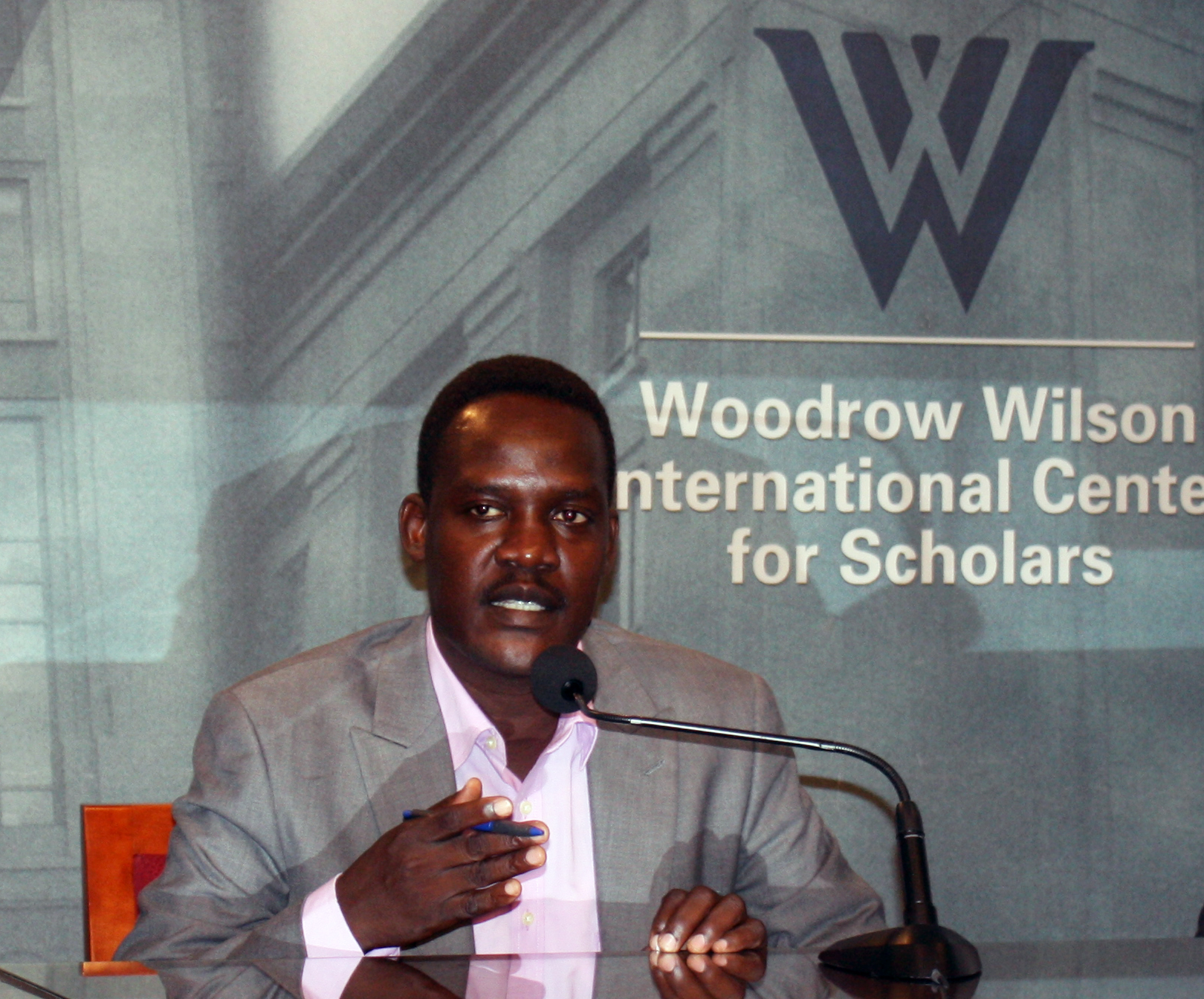
After enduring 45 days of detainment, beatings, torture, a trial in Sudanese court, and two arrests, Rudwan Dawod is free and back with his family in the United States. And although Dawod’s nightmare is finally over, many other political prisoners and human rights activists in Sudan still remain in custody.
Since June, protests and non-violent demonstrations have ignited across Sudan, adding fuel to the spreading wildfire of resistance among students, activists, journalists, and everyday citizens who are fed up with the Khartoum regime. Girifna, which literally translates to “we are fed up” in Arabic, has been on the front line of this movement, holding workshops and mobilizing citizens to use the power of non-violent resistance.
Dawod, a member of Girifna, quickly became the face of Sudan’s non-violent revolution—but not by any intention of his own. After the National Intelligence and Security Service, or NISS, arrested Dawod on July 3 for participating in a peaceful anti-regime demonstration in Khartoum, the government of Sudan accused him of terrorist activities, a crime that is punishable by death in Sudan.
“I didn’t mean to be a leader or to be well known,” Dawod told the Enough Project last week. But he explained how the Sudan state media spotlighted his case through a propaganda campaign that painted him as a CIA operative organizing a terrorist cell. This plan, however, backfired and ironically the fame Dawod gained from Sudan’s media has helped him to further the opposition movement. Dawod’s story of non-violent resistance in the face of a brutal authoritarian regime has become an inspiration uniting Sudanese people in the country as well as diaspora members, and has made international headlines, attracting attention from the U.S. State Department.
During his trial, a Sudanese judge acquitted Dawod of the most serious charges against him but found him guilty of attempting to disturb the public peace, fining him the equivalent of $100. In an act of solidarity, people in the courtroom pooled their money together to pay for Dawod’s fine, demonstrating the growing support for non-violent resistance in the face of the Bashir regime.
During a Q&A with Rudwan Dawod at the Woodrow Wilson Center last week, Dawod said the biggest challenge for Sudan’s revolution moving forward lies in uniting all Sudanese, especially those in marginalized areas such as Blue Nile, Darfur, and South Kordofan. The government of Sudan has ruled for so long with a very calculated divide-and-conquer strategy, isolating different conflicts and making it very difficult to bring people from all areas together cohesively because they all have separate concerns. This is especially true for people in the marginalized areas, who are struggling just to survive.
To bring about real change, the resistance movement must evolve beyond Girifna and unite the opposition parties, civil society groups, and student groups alike. It must bring together people of all backgrounds and marginalized groups under the one overarching goal of regime change.
“We have members from all over, so people see themselves in Girifna,” Dawod told Enough. “Right now we have the biggest chance [at regime change]."
To Dawod and Girifna, this goal of regime change transcends the traditional confines of state-level government and extends into systemic-level propaganda that permeates society. Dawod, a Darfur native, grew up buying into the radical Islamic agenda entrenched in Sudan’s primary and secondary education system, and the state-run media sector. It was not until enrolling at the University of Juba in South Sudan that Dawod gained a new perspective, realizing that the people of South Sudan were his brothers and not his enemies.
This revelation led Dawod to his current work as a project director at Sudan Sunrise, an organization that facilitates reconciliation efforts between Christians and Muslims, and ethnic communities in Sudan and South Sudan. Prior to his arrest, Dawod had travelled to South Sudan with Sudan Sunrise to direct a project in which Muslims from Sudan are rebuilding a Catholic cathedral in Torit, South Sudan that had been destroyed by Sudanese forces.
As a testament to his own enlightenment, Dawod highlights the immediate need to counter state propaganda and said this is something the international community can help support. Messages of non-violent resistance that can unify all Sudanese must spread to marginalized communities, where there are limited means of communication. Only the rich and educated are connected to the Internet, so the movement must grow organically using other methods such as holding workshops, handing out flyers, writing on walls, and visiting people in camps and marginalized areas to speak with them directly.
“I believe in non-violence, deeply, and strongly, that is why I have faced many things,” Dawod told Enough. He recognizes that non-violence resistance against the Khartoum regime may take longer than a more militaristic approach, but even after suffering at the hands of the NISS he believes that non-violence is the best strategy for change because it will result in the least amount of deaths.
As Girifna and its supporters continue to advocate for democratic transformation in Sudan, the challenges will not end with a change in leadership, should they succeed in their goal. Transitioning into an inclusive government structure with democratic elections is no short journey, and Dawod is not alone in blazing this trail of non-violent revolution as others in Sudan have already picked up the torch.
Photo: Rudwan Dawod at the Woodrow Wilson Center on September 4. (Tracy Fehr/Enough Project)

